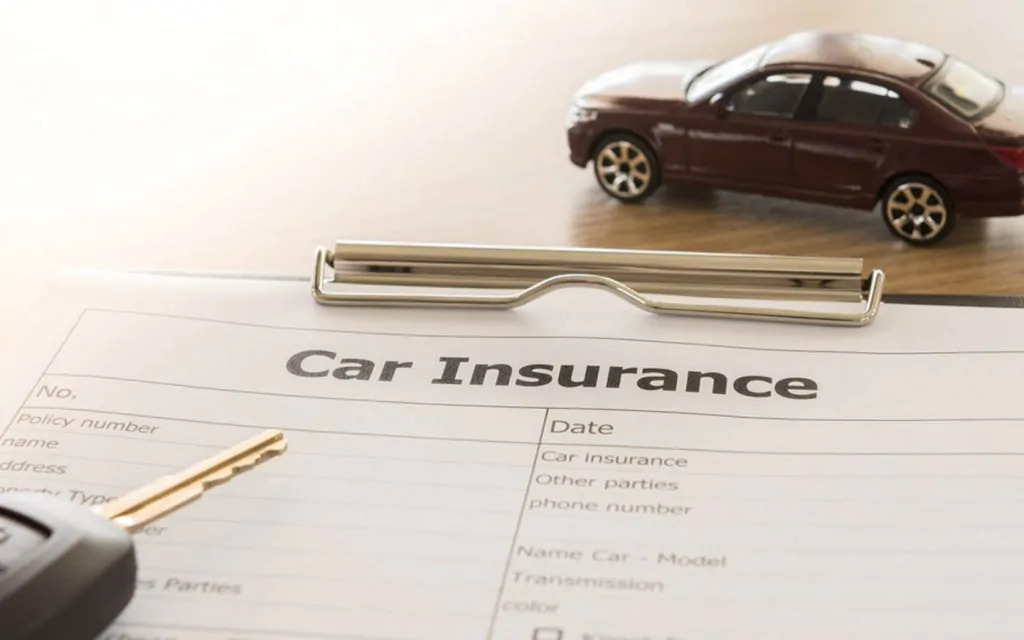What does car insurance fraud entail? Know what to search for.
There are many reasons to understand the importance of having enough coverage for your vehicle insurance, as well as how events like these could impact the price of your policy. A further justification for greater rates? fraud pertaining to vehicle insurance.
Because of the abundance of financial news in the media, stories about car insurance fraud are more prevalent than they have been in decades. Furthermore, most people don’t know much about or understand vehicle insurance fraud, despite the fact that it’s a prominent topic right now.
We may talk about fraud, all of its manifestations, and how it could impact the price of your auto insurance.
Recognizing and stopping insurance fraud
What is insurance fraud? The National Association of Insurance Commissioners (NAIC) states that intentional misrepresentation of another party for financial gain might occur between an agent, customer, insurance firm, or adjuster. The rapid advancements in technology appear to be raising the possibility of vehicle insurance fraud.
Given the frequency of insurance fraud, it is critical for us as consumers to be aware of the various types of fraud to be on the lookout for. Let’s look at each in turn.
Types of vehicle insurance fraud
Individuals frequently use cunning strategies to mislead their insurance provider or clients; these tactics can range from inventing an accident to omitting information from a car insurance application. The NAIC describes two forms of fraud: soft and hard.
Hard fraud occurs when a policyholder intentionally causes harm to their property, such as their car, in order to receive payment under the terms of the insurance policy. One less common example of this type of deception is a faked accident. An additional one is a planned auto theft.
These two scenarios have these results. An accomplice, or prearranged witness, will arrange for one driver to collide with another, causing the victim to be declared at fault by the police.
The phrase implies that the theft is planned: the car’s owner will get a criminal accomplice to help them take the vehicle, then sell, damage, or remove every part of it before filing an insurance claim.
Soft fraud has become considerably more common and is now considered a crime of opportunity. It typically happens when a policyholder fabricates information and distorts the truth while applying for vehicle insurance or when filing a claim in an effort to lower the premium or raise the payment.
Common soft fraud tactics include not disclosing all household drivers, misrepresenting about the insured vehicle’s garaging location (the area the car is typically stored, as opposed to the address on the policy), inflating mileage, and faking violations or accidents.
In light of these two different types of fraud and the numerous methods that people could try to lower their insurance premium or receive a refund, it’s crucial to keep in mind that you could become a victim of vehicle insurance fraud.
Non-consumer fraud schemes
Scams involving the replacement of airbags and dishonest repair companies are frequent opportunities for untrustworthy technicians and shops. These typically happen when companies intentionally inflate accident damage to raise prices for needless repairs. This provides them the opportunity to get paid more and leaves you with a car that can have old or broken parts. It can also make your auto insurance more expensive.
Furthermore, we want to let you know about these, even though they are not very widespread, so you are aware that insurance companies themselves occasionally fall victim to scams. Premium diversion is the practice of a policyholder paying their premiums to an agent or broker as opposed to the insurance provider.
Lastly, it’s imperative to be aware of fraud committed by insurance companies. This is the practice of unlicensed and unregistered “insurance” businesses and agents defrauding their consumers of premiums for imaginary policies.
We understand that’s a lot to take in. The most important question to address, considering the abundance of options for auto insurance fraud, is: Why is car insurance fraud increasing in light of technology advancements?
The allure of making false insurance claims
Verisk recently released an interesting study on the proportion of Americans who think insurance fraud is not illegal. We’ve read that people under 45 may feel envious of those who do it. Surprising? Go on reading.
“Consumer education is necessary to raise awareness of the damage that insurance fraud crimes cause to our economy as well as to each and every American family.”
— Matthew Smith, Executive Director of the Coalition Against Insurance Fraud
As per the survey, over 25% of individuals aged 18 to 34 are inclined to commit insurance fraud and believe it is acceptable to submit a fictitious claim for vehicle damage. We wonder why individuals commit insurance fraud in the first place, particularly in light of the plausible justifications that younger generations are coming up with.
- Do they experience financial stress?
- Are they aware of the consequences of fraud?
- Is there a lot of pressure from family and friends?
In light of these and other problems, vehicle insurers are left to deal with the surge in auto insurance fraud and its impact on the industry as a whole.
Insurance fraud’s consequences
Occasionally, you might hear about the results of your actions. That old saying, “What goes around, comes around.” Nevertheless, the same philosophy applies to fraudulent auto insurance.
Insured drivers who commit insurance fraud may be subject to fines, jail time, or even the loss of their driving privileges if they are found out, depending on the fraud, how serious it is, and the state in which it was committed.
It may also result in the cancellation of your existing auto insurance and increase the difficulty of obtaining new auto insurance.
Insurance companies claim that fraud can be costly. The Federal Bureau of Investigation (FBI) estimates that insurance fraud costs the industry $40 billion a year, not including health insurance, and costs drivers in the United States an additional $400 to $700 in premiums.
Let’s wrap up that. Millions of drivers who are insured may see an increase in insurance costs as a result of an increase in vehicle insurance fraud, which increases payouts to insurance companies.
Defend yourself against false insurance claims.
Good news updates! You can take certain precautions to lessen your vulnerability to vehicle insurance scams (applause). Our team of insurance experts offers the following guidance:
- Be honest and transparent in your communication with your insurance company. When sharing information regarding an automobile accident or getting a quote from another auto insurance company, it pays to be honest and upfront with your insurer.
- Don’t sign anything you don’t comprehend. It seems very easy, doesn’t it? You would be surprised at how many people only skim the documents and content. Because, like the mermaid who agreed to exchange a person for an evil octopus, your signature is legally enforceable. For example, while applying for insurance, you will typically be required to submit an electronic signature. For this reason, filling out the application is like signing an insurance contract, therefore you should go over everything well before approving anything.
- Get another opinion. Since two is always better than one, am I correct? The intricacies of auto insurance can be complicated, making it challenging for anybody to understand. Obtaining a second opinion could be beneficial if you suspect fraud.
- Report any alleged fraud. Since vehicle insurance fraud may be unlawful, it is a serious infraction that should always be reported. If you think you may be a victim of fraud, get in touch with your motor insurance company. If you have seen it, report it. Typically, you can accomplish this by getting in touch with your state’s insurance department. You can also give the insurance provider a call to confirm that they are a reputable business.
What are some obvious signs that an insurance firm is not what it seems? First, a broker or agent who exerts significant pressure to seal a deal—they might propose it to solar summer sale clients who refuse to accept a no-vibe. Second, one company’s rates can be about 20% lower than those of other companies that provide similar coverage.
Finally, it’s hard or impossible to find a company’s contact information. It should always be found at the bottom of a webpage or on its own page, just so you know.
It may be simpler for you to recognize, prevent, or report vehicle insurance fraud if you keep these guidelines and warning signs in mind before it has an impact on you.
Recent advancements in technology and strategies for preventing fraud
Technology has benefits and drawbacks despite its fast growth. Though it might be making fraud easier, it might also be incredibly beneficial in the battle against fraud. How? utilizing both image and video analysis and advanced data analytics.
Through the application of data analysis techniques, insurers may quickly identify patterns and discrepancies that suggest potential fraud. This data may include driving patterns or claim history to aid in the identification of suspicious actions or claims.
Ultimately, as dashcams and cellphones proliferate as instruments for motorists to capture visual proof, insurance companies employ technology to confirm the authenticity of images or videos that drivers who are trying to commit fraud submit. Certain abilities could detect alterations or anomalies and determine whether an accident was caused by fabrication.
Usage-based insurance (UBI) with telematics may be very advantageous for younger drivers and aids in the battle against insurance fraud. These insurance models use devices or smartphone technology to collect data about driving behavior.
By using these tools and technology, insurance firms can identify and stop fraud, and young drivers may control their prices by driving sensibly.
Taking advantage of telematics to fight insurance fraud
Sincere consumers like you and vehicle insurance companies are both at considerable danger from insurance fraud. To help you avoid being a victim of scams, educate yourself on the many types of insurance fraud and the warning indicators.
If you use caution while filing claims, we as a community of responsible drivers have the opportunity to combat insurance fraud and help create a safer insurance future. To secure your trip and maybe reduce your risk of insurance fraud, look into telematics-based insurance options. Together, we can make the traffic better and contribute to a fraud-free future.


